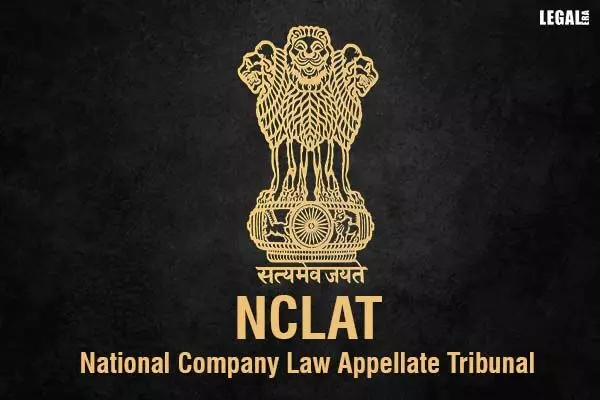- Home
- News
- Articles+
- Aerospace
- Agriculture
- Alternate Dispute Resolution
- Banking and Finance
- Bankruptcy
- Book Review
- Bribery & Corruption
- Commercial Litigation
- Competition Law
- Conference Reports
- Consumer Products
- Contract
- Corporate Governance
- Corporate Law
- Covid-19
- Cryptocurrency
- Cybersecurity
- Data Protection
- Defence
- Digital Economy
- E-commerce
- Employment Law
- Energy and Natural Resources
- Entertainment and Sports Law
- Environmental Law
- FDI
- Food and Beverage
- Health Care
- IBC Diaries
- Insurance Law
- Intellectual Property
- International Law
- Know the Law
- Labour Laws
- Litigation
- Litigation Funding
- Manufacturing
- Mergers & Acquisitions
- NFTs
- Privacy
- Private Equity
- Project Finance
- Real Estate
- Risk and Compliance
- Technology Media and Telecom
- Tributes
- Zoom In
- Take On Board
- In Focus
- Law & Policy and Regulation
- IP & Tech Era
- Viewpoint
- Arbitration & Mediation
- Tax
- Student Corner
- AI
- ESG
- Gaming
- Inclusion & Diversity
- Law Firms
- In-House
- Rankings
- E-Magazine
- Legal Era TV
- Events
- News
- Articles
- Aerospace
- Agriculture
- Alternate Dispute Resolution
- Banking and Finance
- Bankruptcy
- Book Review
- Bribery & Corruption
- Commercial Litigation
- Competition Law
- Conference Reports
- Consumer Products
- Contract
- Corporate Governance
- Corporate Law
- Covid-19
- Cryptocurrency
- Cybersecurity
- Data Protection
- Defence
- Digital Economy
- E-commerce
- Employment Law
- Energy and Natural Resources
- Entertainment and Sports Law
- Environmental Law
- FDI
- Food and Beverage
- Health Care
- IBC Diaries
- Insurance Law
- Intellectual Property
- International Law
- Know the Law
- Labour Laws
- Litigation
- Litigation Funding
- Manufacturing
- Mergers & Acquisitions
- NFTs
- Privacy
- Private Equity
- Project Finance
- Real Estate
- Risk and Compliance
- Technology Media and Telecom
- Tributes
- Zoom In
- Take On Board
- In Focus
- Law & Policy and Regulation
- IP & Tech Era
- Viewpoint
- Arbitration & Mediation
- Tax
- Student Corner
- AI
- ESG
- Gaming
- Inclusion & Diversity
- Law Firms
- In-House
- Rankings
- E-Magazine
- Legal Era TV
- Events
NCLAT: Section 238 of IBC overrides Limitation Act
The National Company Law Appellate Tribunal (in short NCLAT), Chennai observed that the Appellate Tribunal has no power to condone delay after 45 days as it is beyond permissible limit, provided under the Insolvency and Bankruptcy Code, 2016 (in short IBC) and that Section 238 of IBC has an overriding effect, hence, Section 12 of the Limitation Act, 1963 cannot be invoked.
M/s. Platinum Rent a Car (India) Pvt Ltd- appellant contended that it was a party to the proceedings before the Bengaluru bench of the National Company Law Tribunal (in short NCLT).
It said that the company, Quest Offices- respondent had filed a petition under Section 7 of the IBC for initiating a Corporate Insolvency Resolution Process (in short CIRP) against Platinum, its corporate debtor. On 8 June, 2020, the Bengaluru bench, the Adjudicating Authority in the case, admitted Platinum into the CIRP over the default of a sum of Rs. 10.95 crore.
The counsel appearing for the appellant said that the corporate debtor wished to file an appeal before the NCLAT, Chennai against the 8 June, 2020 order. It, therefore, applied for a certified copy of the NCLT's order on June 8, 2020 itself.
Thereafter, it received the order copy only on 26 July, 2022 and subsequently, filed its appeal before the NCLAT only on 3 August, 2022, on the 55th day since, the Bengaluru bench's order.
It, therefore, approached the NCLAT pleading that such delay be condoned since it had been caused by the delay in procuring the certified order copy. The company's counsel also said that the Limitation Act provides for condonation of delay in cases such as the present.
The two judges' bench of Justices M Venugopal (Judicial Member) and Shreesha Merla (Technical Member) refused to condone the delay of 55 days as it does not holds the power to condone a delay exceeding a period of 45 days, which is the maximum extension period granted under Section 61 of the IBC.
"Be that as it may, the Appellate Tribunal has no power to condone the Delay after 30 + 15 = 45 Days and in the instant Company Appeal came to be filed on 55th day, which is beyond the permissible limit, provided under the Insolvency and Bankruptcy Code, 2016. This Tribunal, is not to extend its judicial arm of generosity, considering the fact that the Insolvency and Bankruptcy Code, 2016, is a self-contained and inbuilt one," the order said.
The NCLAT elucidated that all procedural formalities enshrined under the IBC, including the time limit, must be followed in true letter and spirit for, speed was 'of the essence' of the IBC, 2016.
Consequently, the Tribunal dismissed the appeal.




